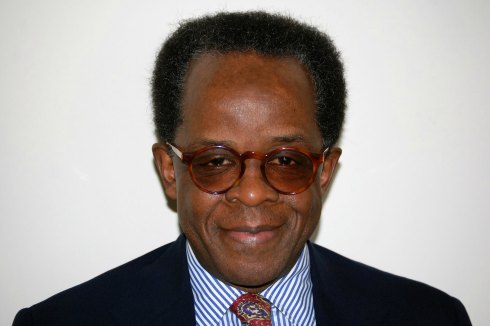
What was it that made watching the ceremonies of President Obama’s second inauguration more satisfying than even the thrilling spectacle of four years ago?
Certainly, part of it was its occurring the same day as the celebration of Dr. Martin Luther King, Jr.’s birthday and amid the month-long commemoration of the Emancipation Proclamation – underscoring the direct line of descent from Black Americans’ longtime freedom struggle to the present.
Certainly, part of it was also savoring Obama’s success in making history the second time around – knowing that he had endured the extraordinary test of staunching a wrenching economic crisis; extricating the U.S. from the Bush administration’s tragic misadventure in Iraq; maneuvering around the obstructionist tactics of the Congressional Republicans; and beating back the fat-cat power grab the atrocious Supreme Court Citizens United decision, which approved unlimited corporate donations to political campaigns, was supposed to further.
And part of it was knowing that, albeit the operational genius of the president and his campaign staff, the credit for his victory doesn’t wholly belong to them. To borrow a phrase, they didn’t build that by themselves. They had help from the multiracial, multicultural coalition of voters that enabled the Democrats to keep control of the White House and the Senate.
Barack Obama has been wreathed in “making history” since he gained the presidency of the Harvard Law Review 23 years ago. But voluminous evidence exists that the foundation for his current history-making lies in the astutely-waged, post-1960s political gamesmanship of the Democratic Party’s most sustaining voting bloc: African-American voters.
That point was driven home most recently by a report the Pew Research Center released in late December. Its title tells the tale: “The Growing Electoral Clout of Blacks Is Driven by Turnout, Not Demographics.”
The study’s preliminary analysis of the 129 million votes cast November 6 indicates that Blacks not only voted at a substantially higher rate than Hispanic-American and Asian-American voters – who also voted massively for Obama – but may have voted at a higher rate than Whites as well.
If so, it would be a “first” in the history of the presidential-election vote. But the mere fact that it’s a possibility underscores several powerful recent developments about the political participation of Black voters and other voters of color.
For one thing, even as Blacks’ population growth and, therefore, growth in eligible voters has been leveling off, their rates of turning out to vote have increased markedly. In 2008 that rate hit a high-water mark of 65.2 percent – a rise of 5 percentage points from 2004. By contrast, Whites turned out to vote that year at a rate of 66.1 percent, a percentage point lower than their 2004 showing.
Of course, Obama’s candidacy was partly responsible for Blacks’ march to the polls. But, in fact, their turnout for presidential elections had been climbing sharply since 1996. That means that even before the Obama candidacy, the Black electorate was on a path to maximizing its voting potential.
The importance of these facts and trends is that this past November President Obama won the support of 93 percent of Black voters; 73 percent of Asian-American voters; 71 percent of Hispanic-American voters; and the majority of votes from women as a group and the 18-to-29 voting bloc. That support, along with gaining 39 percent of White voters, gave him his 4.7 million popular-vote margin and 332-to-206 Electoral-College margin over Mitt Romney.
To try to blunt these groups’ rising voting power, Republican Party officials – whose efforts at using voter-identification measures to limit the electoral power of Blacks and other Democratic-leaning voters clearly backfired in November – are now boosting a variety of legislative schemes in such states as Virginia, Pennsylvania and Wisconsin.
Those measures seek to split up the state’s total Electoral-College votes according to which presidential candidate wins what congressional districts in that state. Only Maine and Nebraska do it that way now. If such a scheme, which favors rural – and thus, overwhelmingly Republican — districts over the more heavily-populated, diverse and Democratic-leaning urban districts, had been in place in November, it would have enabled Romney to eke out a win over Obama.
Donald A. McEachin, a Virginia Democratic state legislator, interviewed about such measures by the Washington Post, called them “sore-loser bills.”
Progressive advocacy groups must now do some doubling-down of their own on these policies that come straight from the tawdry playbook of the Jim Crow South. They must mobilize to defeat these anti-democracy measures and intensify efforts to increase both the registration of new voters among white progressives and Americans of color – and to ensure that they turn out at the polls in coming elections in ever-increasing numbers.
History is repeating itself, yes. The forces of progress need to make sure that for today’s neo-racists, in 2014 and 2016 as in 2012, history repeats itself not only as farce, but also as defeat.
Lee A. Daniels is a journalist based in New York City who was most recently Founding Editor of TheDefendersOnline.com. His book, Last Chance: The Political Threat to Black America was published in 2008
